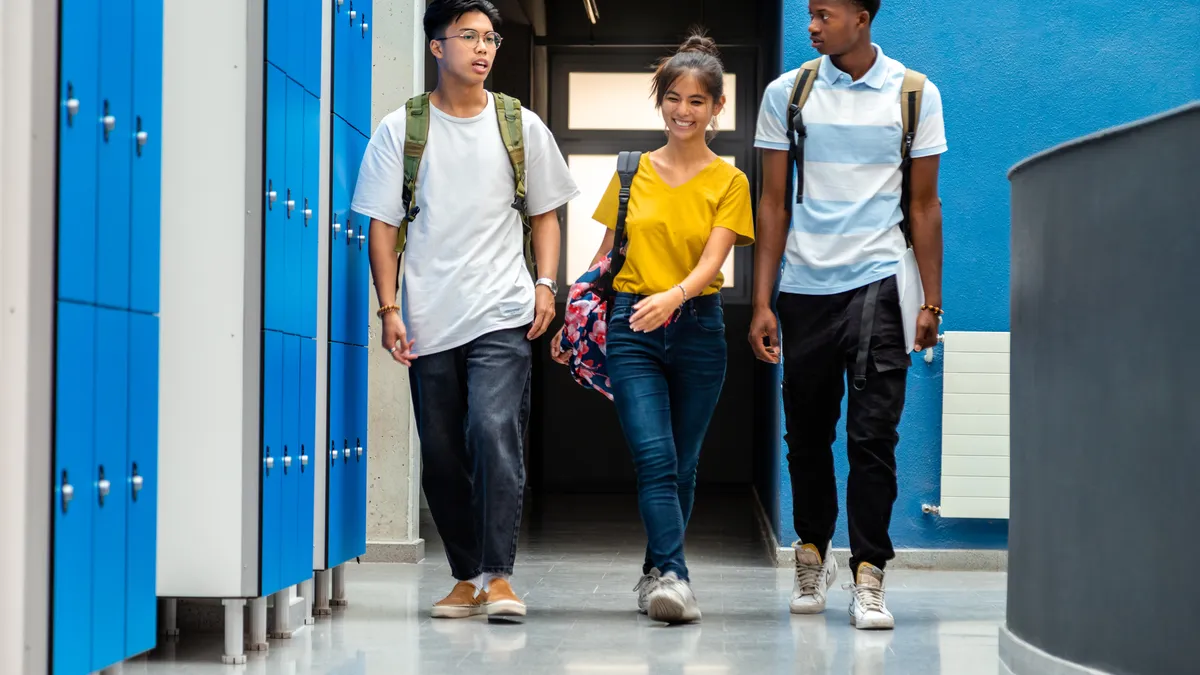Dive Brief:
- Teens ages 13-18 said their mental health, motivation, relationships with friends and overall happiness have improved since the early months of the COVID pandemic, according to a survey conducted by Morning Consult, a business intelligence company, and EdChoice, a nonprofit that advocates for school choice.
- Black teens, Hispanic teens, teens from urban areas and adolescent boys were somewhat more likely to report feeling better than other groups. LGBTQ students, adolescent girls, and those living in rural areas were least likely to say they were thriving.
- Around half of teens reported they feel supported by their schools when it comes to academics and their future, but only one-third of survey respondents said they feel supported by their schools in terms of mental health.
Dive Insight:
The survey, which included a sample of 1,000 teenagers questioned between March 24 and April 5, revealed more than half of respondents reported feeling happy, hopeful and having a sense of purpose. But while 42% said they felt satisfied with their academic performance, only 29% said the same about their mental health.
When asked if school contributes to their well-being, 61% said school contributes "a lot" or "a little." Some 22% said school harms their well-being.
Although higher percentages of respondents reported positive views of how their schools address guns (40%) and violent behaviors (36%), only 31% reported positive viewpoints on how their schools support mental health.
"Schools play a crucial role in the overall wellbeing of our youth, and it's concerning to see a relatively small proportion of teens feel supported by their schools when it comes to mental health," said Paul DiPerna, vice president of research and innovation at EdChoice, in a statement.
DiPerna said the disparities found in the survey point to a heightened need to make sure students are in learning environments that meet all their needs. "We hope this survey serves as a wake-up call for policymakers, parents, and educators to prioritize giving families more choices in where and how their children are educated and where their social-emotional needs are met," he said.
Other results from the survey include:
- In-person or remote. Students were split on in-person versus hybrid learning, with 42% saying they prefer five days a week of in-person learning and 47% saying they would like to learn remotely up to four days a week.
- College plans. More teens this spring — 35% compared to 29% the year before— said they expect to enroll in a four-year, in-state college after high school.
- Changing schools. About 33% of students said they have changed schools over the past three years, other than moving from middle to high school. About 40% of those who changed schools had done so two to four or more times.
- School safety. Fewer students (28%) than parents (52%) said they were worried about a violent intruder entering their school.
- Learning areas. Over half of respondents (58%) said learning skills for future employment was "extremely important." Fixing social problems and learning core academic subjects came in last as "extremely important", identified by just 38% of students each.












